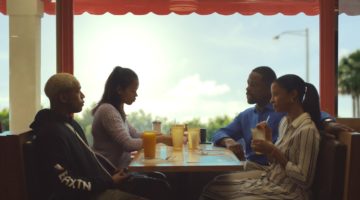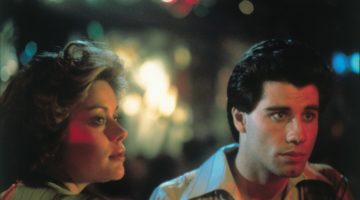5 Questions with Jessica Edwards of Mavis!
Fresh from its appearance at Hot Docs in April, where it played exceptionally well, including an outdoor screening, the film Mavis! comes to select cinemas across Canada, including Bloor Hot Docs Cinema, where director Jessica Edwards will be participating in select Q & A’s on November 13th. The film will also be available at the same time on VOD, and seeing Mavis! in the comfort of your home is an interesting experience because the film inspires a great deal of head nodding, and snapping and hand clapping.
We spoke to the Canadian-born and Brooklyn-based Edwards during the documentary festival, in the Films We Like office, which is appropriate because the film offers plenty of which to like.
Scene Creek: Is it really true that you went on Netflix looking for a documentary about Mavis and not finding one, decided to make your own?
Jessica Edwards: Yeah, of course. It’s not there! I mean, I just wanted to learn as much as I could about her. And so my natural way of doing that, making documentaries, is to watch a film! So, and this was actually before her biography had come out too, so of course there’s tons of media, she’s been talking to the press for sixty years, so there’s lots of interviews and stuff, but there’s nothing comprehensive, there was nothing contemporary, there was nothing that kind of dealt with the resurgence of her career and her later life, so I think that it’s important to make the kind of film you want to watch, that you would enjoy watching, so that’s how we did it.
Scene Creek: How do you think that your film will play in Toronto?
Jessica Edwards: Toronto audiences are incredibly discerning. The Toronto public support their film festivals, they are active participants, the screenings are always sold out. They have a lot of opinions and they’ve just developed a taste. I joke that having lived in the States for a long time, that documentaries, that we (demurring) and I’ll say “we” that documentaries are Canada’s art form. We are very good at it and Canadians make great documentaries usually, and so I was very nervous about showing it here. I really wanted to see what the reaction would be like.
Scene Creek: What were some of the rules that you followed?
Jessica Edwards: We always wanted to tell Mavis’s story, but we wanted Mavis to tell it. We tried to really stay in the now. We tried to…of course, inevitably, there was going to be history within in, but I didn’t want it to feel like a historical film. That was really important to me. One of the ways I wanted that to happen was to always come back to her now. It was really like following the first time that I saw her, the first time that I saw her play, I was listening to her music for a long time, but following the hits and the Stax era stuff, and really following the feeling that I first had.
Scene Creek: What was the hardest interview to find?
Jessica Edwards: You know, Bob Dylan, that was a real journey to find and the Prince footage that we ended up using was also, you know, that was my first two phone calls, with Prince it was a little bit harder, because he doesn’t have like one person that he’s been working with forever, I think that the people you contact Prince through change a lot, so we tried really hard to get that, and then we found all of this amazing footage of the two of them together which started to tell that story. And like with Dylan, I called his manager every Friday afternoon, and they never said no, but you know, it took a long time. The archive process was actually really fun because you can go on this treasure hunt. My rule that I followed throughout, which was actually when people came up to us after the screening, saying “it was great, I am such a big fan”, I said “Great! Did we surprise you?” Inevitably, there’s like one or two nice things.
Scene Creek: How attached are you to the exclamation mark?
Jessica Edwards: Ah! The exclamation point! So that was something I thought of really early, really early and it sort of just does all the work for you, and I am not a huge fan of the subtitle. I of course understand why films want to use a subtitle, documentaries tend to have this thing, where it’s called one thing, and then there’s like a paragraph underneath, I’m not a fan of that. I like the idea that a film do the explaining for itself. But she is just this great exclamation point.



